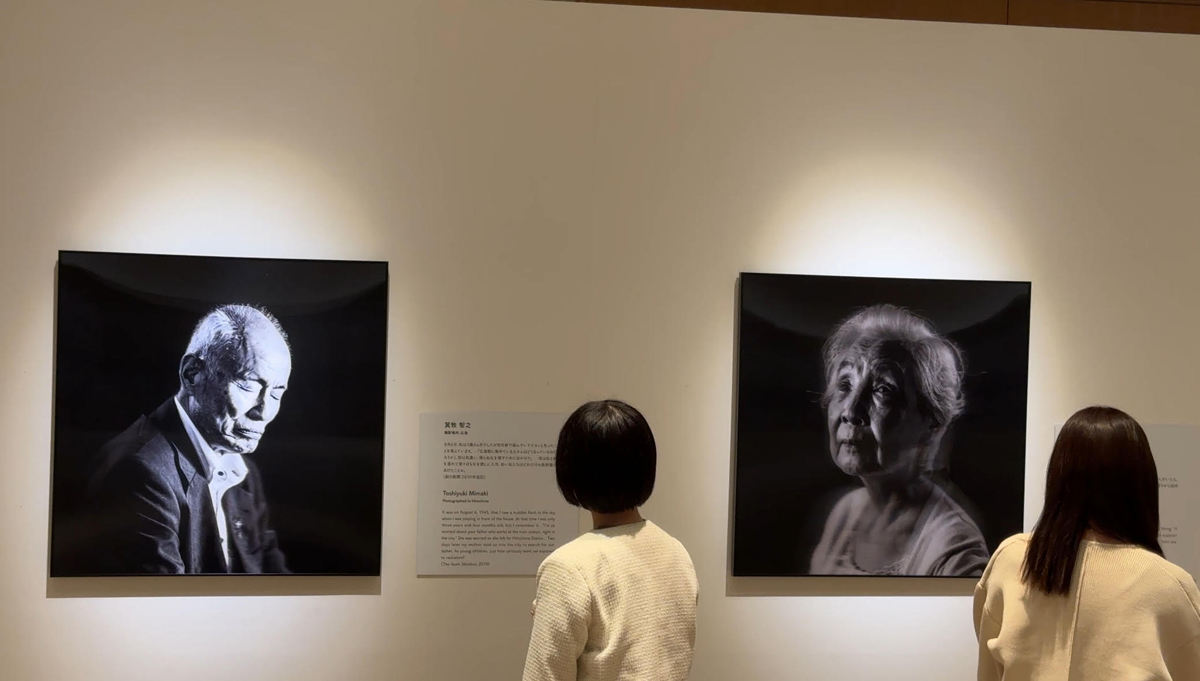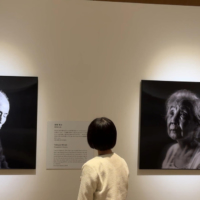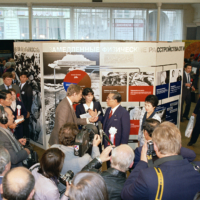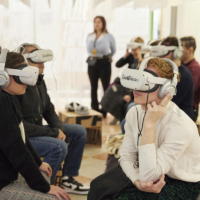“There’s nothing we can do …” Mitsuo Hoshi heard his friend reply after telling him about the dangers of nuclear weapons. It was then that Hoshi, 35, realized that when people hear about these weapons, they seem almost unreal. But the more he learns about their devastating effects, the more urgently he feels the need to talk about them.
Hoshi had just viewed the photo exhibition “Portraits of the Hibakusha — 80 Years Remembered” that features over 50 dramatic black and white 3D lenticular portraits of victims from Hiroshima and Nagasaki.
Atomic weapons cast an ominous shadow over humanity and threats to use them are being made once again. Deterrence — the idea that nuclear arsenals provide security and defense — causes most of humanity to live in an unstable peace built on fear, the foundation of which is mutual distrust.
In emergency, high-pressure situations, leaders might not be able to stay calm and make wise decisions. There is also the risk that nuclear weapons could be used due to misjudgment, cyberattacks or accidents. Any use of nuclear weapons would have devastating effects on every aspect of our lives, including health, the environment, development, the global economy and food security.
Sakue Shimohira, a hibakusha from Nagasaki who was featured in the exhibition, stated, “The atomic bomb blew off arms and heads. It was brutal. Nuclear weapons must never be used for any reason whatsoever.”
Hiroshima and Nagasaki are the only places to have suffered the wartime use of nuclear weapons. Yet there are also other victims of radiation exposure around the world who have been affected by nuclear accidents, weapons tests and related causes. Bolatbek Baltabek, a victim of nuclear testing in Kazakhstan, has experienced this firsthand: “Since childhood, we have seen our friends, classmates and fellow villagers get sick, suffer from leukemia, lose their eyesight, and die. Or develop a brain tumor and slowly die.”
The issue of nuclear weapons is not an abstract, distant issue related to security and international politics. It creates real victims, deeply affecting their families and loved ones. Listening to the voices of the hibakusha and reliving their experiences in our imagination must be the starting point of campaigns to abolish nuclear weapons and of all awareness-raising efforts.
It is noteworthy that both the International Campaign to Abolish Nuclear Weapons and the Treaty for the Prohibition of Nuclear Weapons place victim assistance and the voices of the hibakusha at the heart of their ideals.
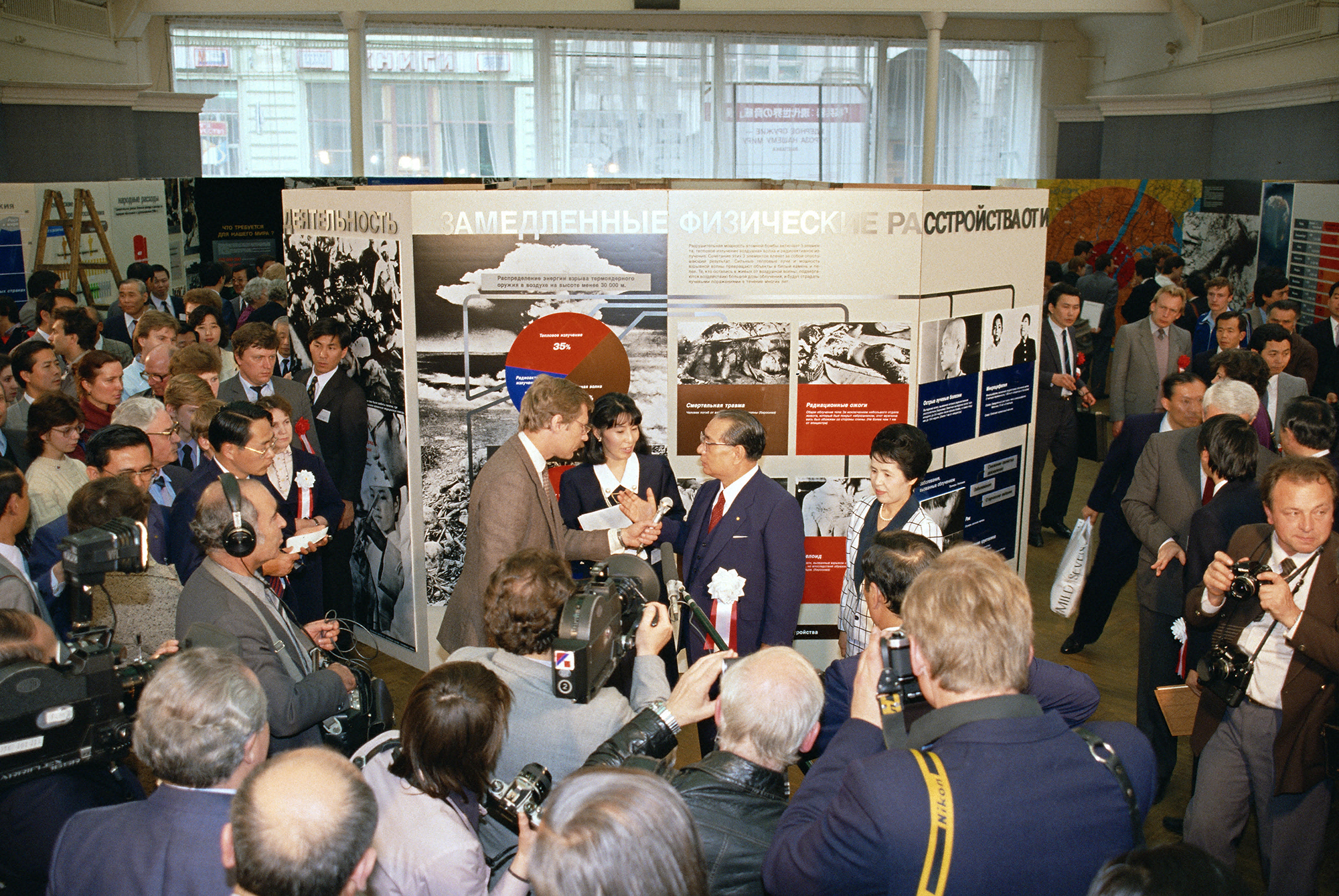
Faith leaders who believe that the development, possession and use of atomic weapons are immoral are among those calling for their abolition.
Pope Francis, who visited Nagasaki and Hiroshima in 2019 and met with hibakusha, condemns the weapons. The late Soka Gakkai International President Daisaku Ikeda (1928 to 2023) campaigned tirelessly to abolish these inhumane weapons for more than 60 years. When Soka Gakkai President Minoru Harada met with the pope in Vatican City in May, they reconfirmed their commitment to working for nuclear abolition.
In the meantime, data indicates that the nine nuclear-weapon states’ annual spending on nuclear weapons totaled $91.4 billion in 2023. How much better would the world be if this amount of money were channeled into eradicating poverty, improving welfare or building renewable energy infrastructure?
It is crucial that we work to strengthen global opinion that nuclear weapons are reprehensible and a manifestation of utter evil, through our individual efforts to learn and speak out for their abolition.
According to a survey of youth aged between 20 and 35 in 16 countries and territories by the International Committee of the Red Cross, 84% believe the use of nuclear weapons in war is never acceptable.
The production and use of landmines has now dramatically dropped due to the efforts of civil society and others to create a treaty banning them. Similarly, chemical and biological weapons have been prohibited.
As people’s voices rise, policymakers will no longer be able to ignore them, companies and financial institutions will be forced to refrain from financing and engaging with the nuclear weapons industry so as not to lose social credibility, and nuclear-weapon states and nuclear-weapon-dependent states will have to change their approach to security.
The more people raise their voices, the closer we will get to the goal of abolishing nuclear weapons.
In 2011, youth in Italy launched the Senzatomica (No Nuclear Weapons) abolition movement. They tackle the apathy and helplessness that makes people think there is nothing that one individual can do. Senzatomica sponsors public events highlighting approaches to action, such as “Be Conscious of the Words We Use,” “Learn How to Manage Conflict,” “Strengthen Your Conviction in Peace” and “Raise Your Voice.”
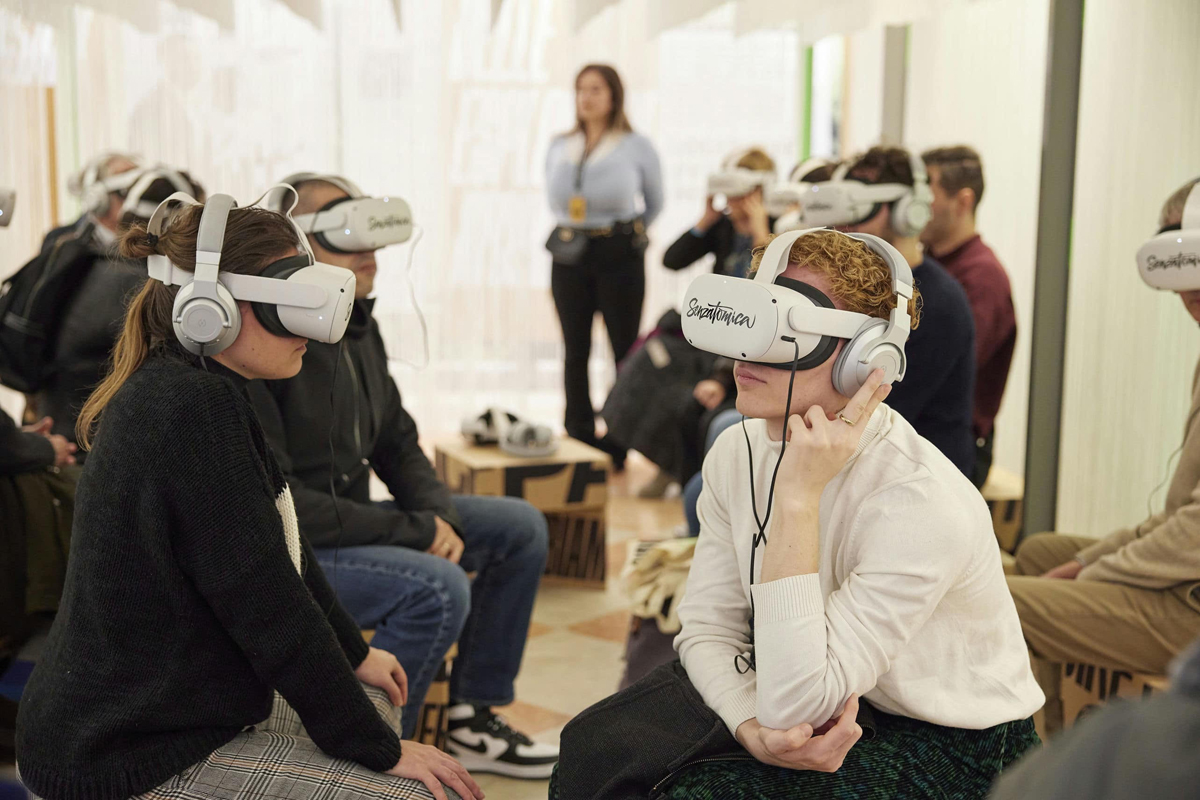
It is vital to change our mindsets from “there is nothing I can do” to “I will do what I can.” Let us remember the words of Jody Williams, the founding coordinator of the International Campaign to Ban Landmines, “Together we are a superpower.”
Daisaku Ikeda wrote: “Human beings inherently possess the strength to overcome any challenge. When youth stand up in solidarity, confident that they can determine the future, this fresh awareness and momentum will surely become the driving force toward a brighter future.”
Buddhist philosopher Daisaku Ikeda devoted his life to promoting peace through dialogue. He issued annual peace proposals between 1983 and 2022 in which abolition of nuclear weapons was a consistent theme and stressed the need for policies of No First Use.



